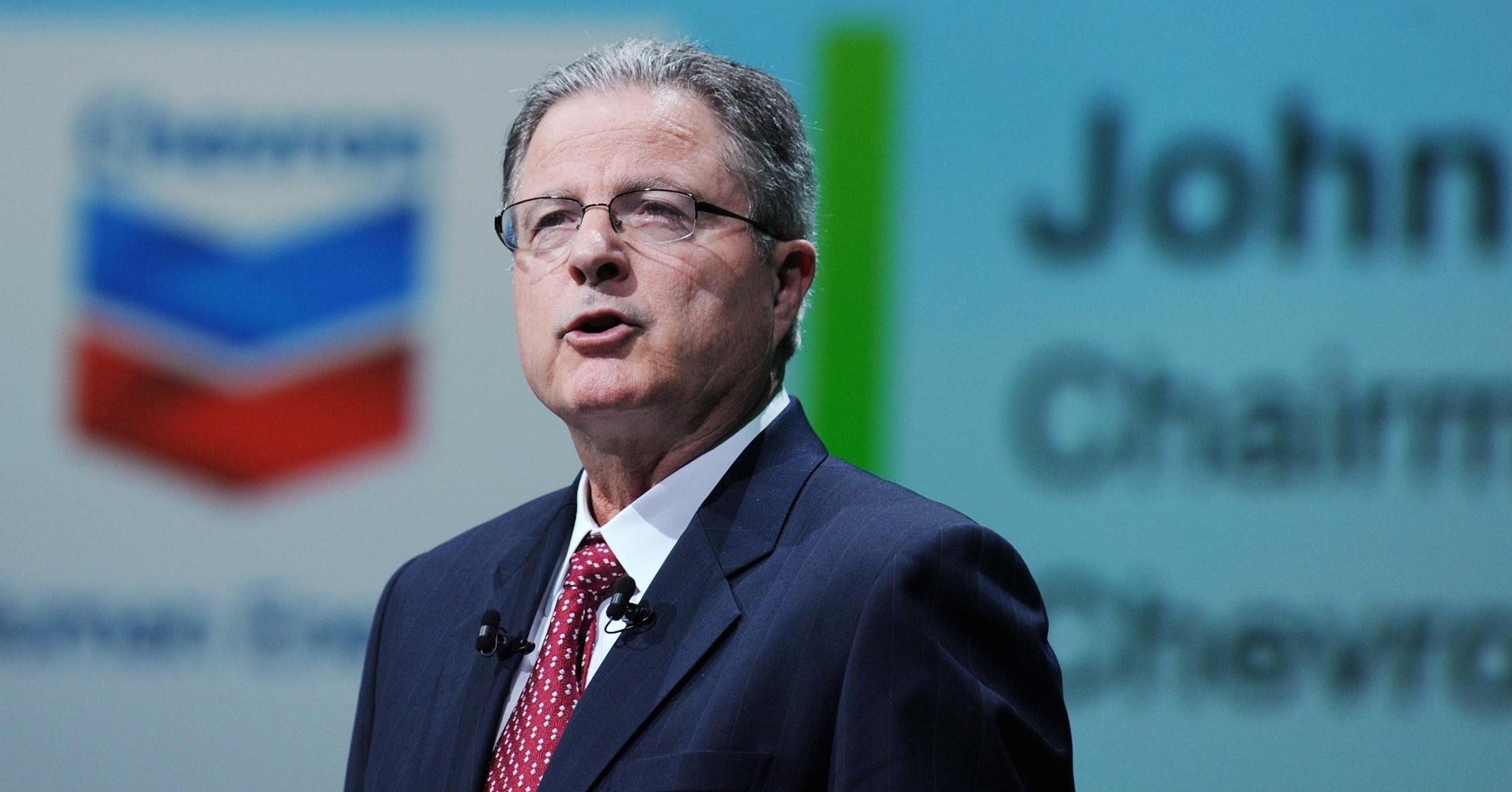Chevron CEO Watson to step down, Wirth likely successor, source reveals
August 23, 20171.3K views0 comments
John Watson, Chevron Corp Chief Executive will step down by the end of next month, September and Mike Wirth, Vice Chairman, likely to replace him, Reuters reports. on Tuesday.
A source familiar with the matter told Reuters Tuesday, as it is expected that in Wirth, Chevron would pivot to a leader with experience in refining, where costs are regularly scrutinized down to the fraction of a penny.
The unexpected shake-up at one of the world’s largest oil and natural gas producers comes as pressure grows on the industry to further cut costs and control spending.

The move would copy rival Exxon Mobil Corp, which earlier this year named refining expert Darren Woods as its own CEO, a step widely seen as prioritizing cash generation to protect payouts to shareholders above pricey exploration projects.
The CEOs of rivals Total and Royal Dutch Shell also have experience in refining.
Chevron’s shares are up about 35 percent since Watson took over as CEO in January 2010, but the Dow Jones industrial average has more than doubled in that time. The company’s shares are trading at the same level they were in early 2011.
Chevron spokesman Kent Robertson declined to comment. Neither Watson nor Wirth responded to requests for comment.
The California-based company is emerging from a global commodity price slump and is beginning to reap the fruits of a multibillion-dollar expansion spree.
The exit is not acrimonious and Watson sees it as an opportunity to hand over the reins of a growing enterprise to Wirth, according to the source.
“He may see it as a good time to step down and allow fresh management to take Chevron further,” said Brendan Warn, an equity analyst with BMO Capital Markets, which advises clients to buy Chevron’s stock.
The company’s growth under Watson has not been painless. Chevron has struggled with cost overruns at two Australian liquefied natural gas (LNG) projects, faced major engineering challenges at its U.S. Gulf of Mexico expansions, and is now contending with growing uncertainty about its operations in strife-torn Venezuela, where it is the only remaining major U.S. oil producer.
One of the Australian LNG projects has now come online, and the other is expected to by next month. Combined, the two are expected to fund half the company’s dividend by 2019.
Watson made no major acquisitions during his leadership, ceding growth opportunities to rivals. Former Exxon CEO Rex Tillerson, for example, bought natural gas producer XTO Energy during his tenure and rapidly expanded into Qatar’s LNG sector.
Watson, who has five years remaining before he hits Chevron’s mandatory retirement age of 65, stuck to projects already in the planning stages when he became CEO in January 2010, rather than coming up with new deal or expansion ideas. Watson’s predecessor, David O’Reilly, retired at 62.
The change at the top of the company, first reported by the Wall Street Journal on Tuesday, did not shake markets. Shares of Chevron rose less than 1 percent to close at $106.36.
Wirth’s experience
Watson is expected to stay on the company’s board of directors for a period of time as Wirth grows into the CEO role, according to the source.
Like many of the company’s executives, Watson has worked at Chevron his entire career and is the product of an internal talent development program.
“It would be hard to sit there and say that John Watson did a bad job as CEO,” said Oliver Pursche of wealth manager Bruderman Brothers LLC, which holds shares in the company. “When we think about how Chevron has run its different business lines during the oil price slump, they’ve managed very well.”
Wirth, 56, has been vice chairman since February and runs the company’s pipeline division. He previously ran Chevron’s refining unit, which has grown rapidly in recent years, with the company investing heavily in expansion and renovations.
Chevron last month posted higher-than-expected second-quarter profits on higher production and oil prices and lower spending on large projects.
Under Watson, the company has been shifting additional resources to shale oil projects that promise quicker returns, but nearly all of that shale acreage has been in the company’s portfolio since the 1930s.
Watson, an economist by training, rose through the company’s ranks, served as its chief financial officer, and earlier oversaw the integration of Texaco operations following the 2000 acquisition.
